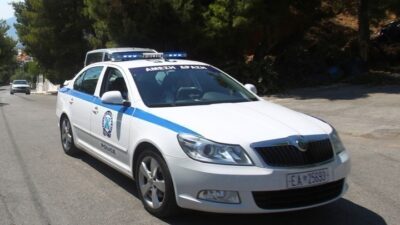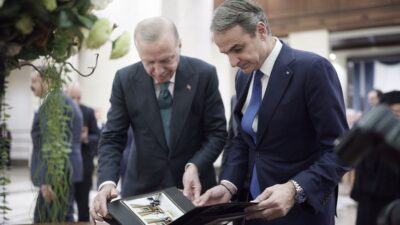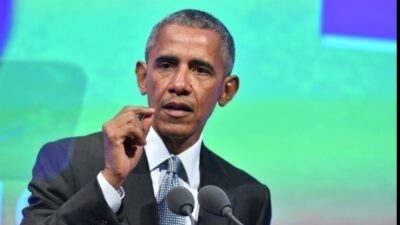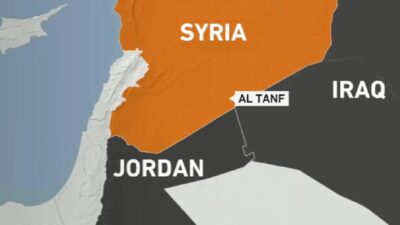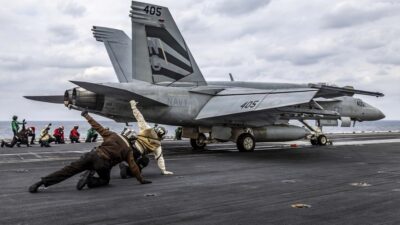Stavros Lygeros; Why the Greek-Turkish dialogue will be just a parenthesis – Unless …
21/09/2020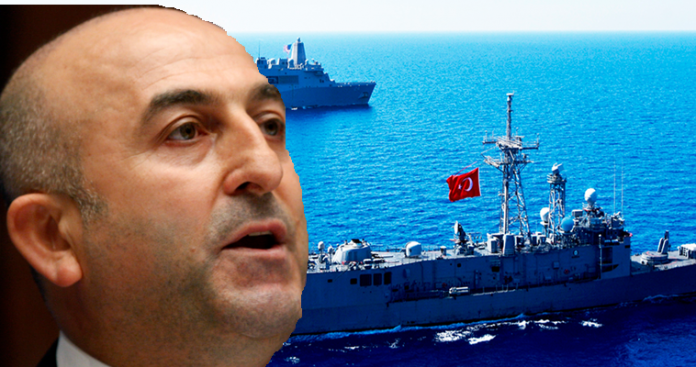
It is visible to the naked eye that we have entered the final stretch to start the Greek-Turkish dialogue, as they call the negotiations for communications reasons. The return of the Oruc Reis to port was the pretext that Mitsotakis asked for to sit at the table, claiming – unlike the Turks – that the only issue on the agenda would be the delimitation of the continental shelf-EEZ.
This is despite the fact that Cavusoglu – in an interview with CNN Turk – said that in a teleconference with Merkel, Erdogan clarified that the Oruc Reis did not end its voyage, but docked for maintenance work, which will last a few weeks, adding: once the maintenance is complete, we will continue our activities with determination “.
What does this mean; It means that at best Ankara will keep the Oruc Reis in Antalya only if it deems that the negotiations with Greece are progressing in the way it sees fit. What is Ankara seeking? The Turkish Foreign Minister made this clear. He wants to include in the agenda all the unilateral Turkish expansionist claims (range of Greek territorial waters, “gray zones” and demilitarization of the islands of the eastern Aegean) with the initial goal of politically legitimizing these.
Cavusoglou rejected that only the demarcation of the continental shelf-EEZ will be on the agenda. He even said that issues raised by Ankara have been discussed in the past in the context of exploratory contacts. This is true, at least as concerns Greek territorial waters.
The Greek-Turkish dialogue and the package
While their extension to 12 miles is – according to international law – a right exercised unilaterally by each coastal state, Greece, succumbing to the Turkish casus belli, agreed that this right was to become the subject of bilateral negotiations. Greece had, in fact, accepted the Greek territorial waters to have a different ranges from region to region.
Regarding the “gray zones”, one must not fail to note that Ankara is now talking about “Turkish islands under Greek occupation”. And it refers not only to rocky islets, but also to inhabited islands (eg Fourni, Oinousses, Agathonisi). In essence, the Turks seek to mutilate Greece at the negotiating table, using Athens’ phobic syndrome as a weapon.
The Turkish Foreign Minister spoke explicitly about the package: “It is useful to discuss these as a package, not to choose an issue.” I emphasize that from any compromise on this package, Greece only has to lose, since only Greek territory and Greek sovereign rights are on the table. On the contrary, Turkey can only win.
Demilitarization of the islands
Cavusoglu even announced in advance that the issue of demilitarization is becoming a spearhead of Turkish diplomacy: “We will continue to keep it up to date in the international community. “One of the purposes of the talks is to resolve this issue.” The reason why the Turks are proposing the issue of demilitarization is twofold.
The first is that they have some legal basis. The second is that they seek a partial demilitarization, or at least to prevent the equipping of the Greek islands with modern missile systems (air-to-air, ground-to-sea and ground-to-ground), which can objectively drastically enhance the Greek deterrence strategy. It is indicative that Cavusoglu accused Greece of “transporting heavy weapons to the islands”.
It is obvious that no one – not even the Turks – can claim that the arming of the islands is aimed at a Greek landing on the Turkish coast. On a legal level, Greece invokes the right to self-defense provided by the UN Charter. This is not a pretext. The Turkish Field Army of the Aegean, based on the coasts of Asia Minor, has an offensive line. As its exercises show, it has an operational goal of landing on Greek islands in the eastern Aegean. That is why the large Turkish amphibious fleet that is harbored opposite the islands has been formed.
Its existence is the indisputable proof of Ankara’s intentions, given that the amphibious vessels are purely offensive vessels. Cavusoglu’s criticism of the Kemalists that with the Treaty of Lausanne “we gave away the islands right next to us” is also revealing. The Turks forget that the islands have been inhabited by Greeks for centuries. The same goes for the coasts of Asia Minor. After the Asia Minor Catastrophe and the exchange of populations, Asia Minor was evacuated by the Greek element and with the Treaty of Lausanne the border was drawn between the islands and the coasts of Asia Minor.
The formula/trap
It is not surprising, then, that Erdogan is calling for a revision of the Treaty, and that various members of his regime are frequently declaring that Kastellorizo and the islands of the eastern Aegean, due to their proximity to the Turkish coast, should belong to Turkey! Some, in fact, invoked as a reason for the occupation of the islands their – according to them – illegal militarization by Greece!
It is worth mentioning at this point that in the past it has been suggested (by the US as well) that the islands be demilitarized and that Turkey withdraw both the Aegean Army (from the Asia Minor coast) and the landing ship fleet. It is noteworthy, in fact, that during the Simitis government some circles in Athens seriously discussed this proposal!
You do not need to be a military expert to understand that the Aegean Field Army and the landing fleet can emerge again in front of the islands in a few hours, instead of 1-2 days, while the re-arming of an island is a difficult task and requires months. It is also obvious that in a crisis it will be easy for the Turks to stop him.
We remind you that the invasion of Cyprus became possible only because the coup had been preceded by the withdrawal of the Greek division sent by the government of Georgios Papandreou in the mid-1960s. at the suggestion of the Americans) Cyprus was held hostage. Thus, when the opportunity was given through the coup against Makarios, Ankara took advantage of it, with the result that today the northern part of Cyprus has been completely Turkified.
Four conclusions
History, then, teaches us, but the Greek political system must also want to be taught. So what are the conclusions from the above?
First, we pretend that Oruc Reis did not conduct research in a potential Greek EEZ for a month and a half. The reality is that Ankara will sit at the table, having created an expansionist fait accompli, which it will invoke during negotiations. This is what Turkey has sought from the beginning.
Secondly, the infamous de-escalation came after the fait accompli and before the Summit, in order to prevent the imposition of European sanctions on Turkey. Moreover, it is not even a declared de-escalation. Erdogan makes it clear that the Oruc Reis has not been withdrawn, but will return after “maintenance”. This means that he has in his hands the mechanism for provoking a crisis, which he will activate whenever he sees fit. And no one will be able to tell him anything, since from now on he has talked about temporary mooring.
Third, history proves that even Greek governments that were willing to make concessions to Turkey failed to close the Greek-Turkish front. The reason is that Ankara is asking for so much that until now no Greek government has been willing to give.
Fourth, it is obvious that if the Greek side refuses to negotiate on the unilateral Turkish expansionist claims in order not to legitimize them, Erdogan will send Oruc Reis again for research, recycling the crisis. In other words, we will find ourselves in the same situation again and in fact Germans and Americans (and not only) will accuse us of not being constructive enough, because we refuse to talk! Unless this government chooses to negotiate on the substance, in which case another problem will arise …
